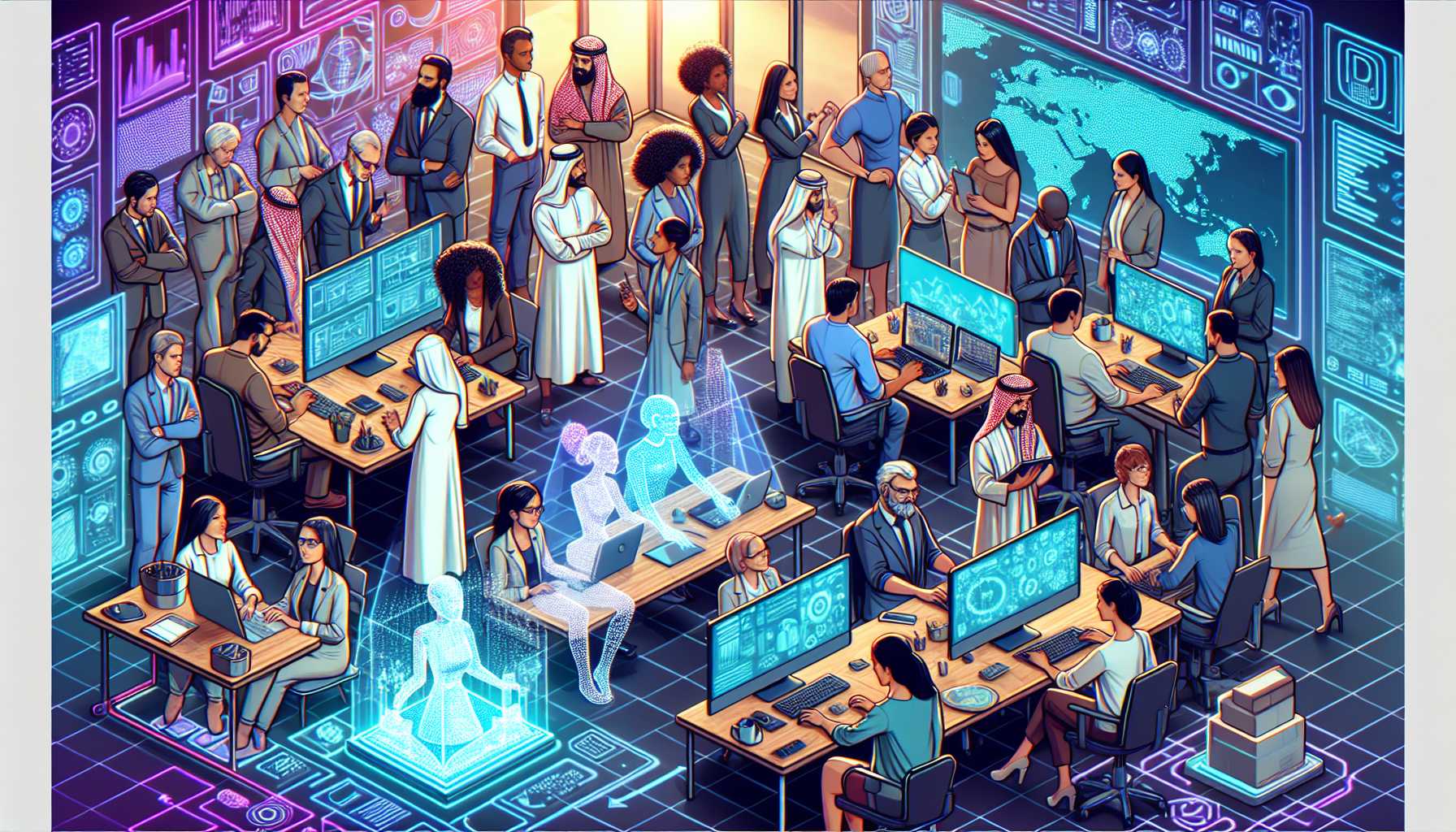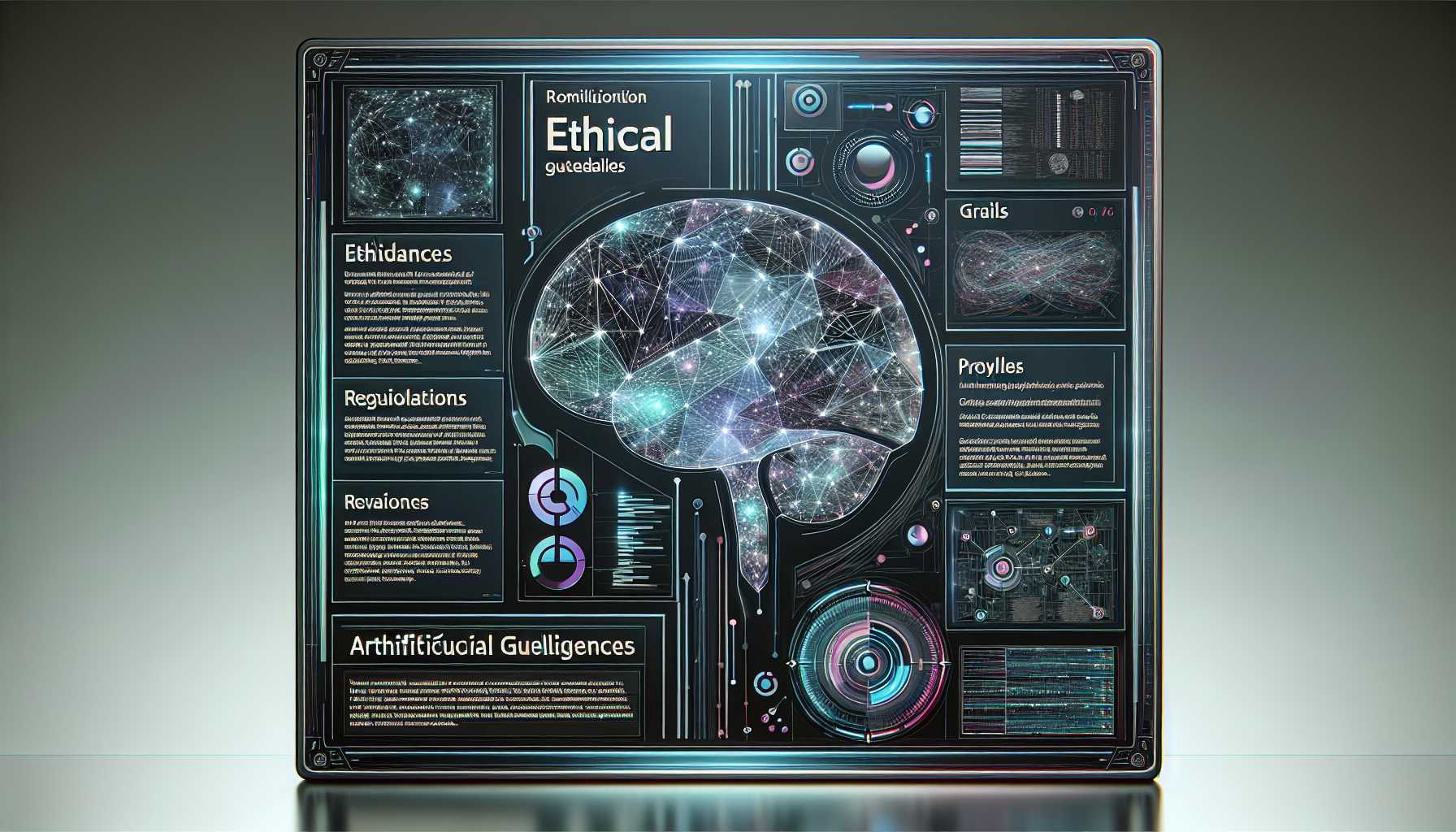Introduction
As we navigate the digital sea, awash with waves of AI innovation, it’s paramount to hoist the flag for those who navigate these waters with exceptional prowess yet receive scarce accolades. Today, our compass is set on illuminating the journeys and achievements of women in AI, whose work often sails under the radar. In the spirit of celebration and recognition, TechCrunch is launching a series of interviews spotlighting the influential women carving out a future where technology intertwines seamlessly with societal advancement.
The Spark of a Revolution: Women in AI
Imagine a world devoid of gender bias, where intellectual conquests stand alone, unshadowed by the societal construct of gender. This is the realm that AI-focused women academics and innovators strive to manifest. However, their path is riddled with systemic blockades not only in terms of gender imbalances but also in the recognition they duly deserve.
As a product manager leader in the tech industry with a penchant for penning tech news, I understand the importance of amplifying voices that echo with groundbreaking insight and perspectives. Dissecting the thoughts of those like Kate Devlin, a beacon in AI and society at King’s College London, is about more than acknowledging greatness; it’s about fostering a collective understanding of where technology should and could lead us.
Kate Devlin: The Intersection of AI and Intimacy
Kate Devlin’s journey through the realms of archaeology and computer science culminated in an intriguing interplay between human-computer interaction and societal norms. Her fearless navigation led her to tackle a domain often brushed aside with awkward giggles and raised brows: AI’s role in intimacy. With her literary work, “Turned On: Science, Sex, and Robots,” Devlin ventures into the often-taboo crossroads of tech and companionship.
As the conductor of the UK’s first sex tech hackathon in 2016 and an advocate for the Trusted Autonomous Systems Hub, she’s carving out robust frameworks for the ethical development of AI systems. Her stance is clear; she seeks not to “lean in” to the status quo but to redefine it. And with every breakthrough and keynote, she chips away at the established notions of what AI can and cannot touch upon within our intricate world of human emotions.
The Male-Dominated Tech Arena: A Perseverance Path
The narrative is troublingly familiar: the male-dominated corridors of the tech industry, echoing with an ethos not reflective of the diverse society that it serves. Devlin’s account is one of resilience in the face of a persistently sexist environment. She calls for more than just representation at the top echelons; she demands an overhaul of the educational system, company cultures, and societal norms that feed the leaky pipeline depriving the AI field of female brilliance. Flexibility in work arrangements and a broader understanding of responsibilities beyond the office walls might just be the ingredients to stem this systemic drain. Devlin indeed paints a picture of a tech industry in dire need of reflection and reform—a call to action that resonates within boardrooms and classrooms alike.
Advice for Aspiring Women in AI: Claim Your Space
Facing the AI colossus may seem daunting, but Devlin’s message to women entering the field is starkly empowering: occupy your rightful place. Her anecdotal wisdom suggests that a battle for space, literal and figurative, is imperative. And as the industry evolves, this struggle translates into a wider concern for the trajectory of AI development itself. The potent mix of responsibility and accountability must underpin each step forward; a shunning of technological determinism in favor of a conscientious path. Devlin’s insights beckon to the idea that while our rapport with technology is inevitable, our ethics and values must dictate its flow, not the other way around.
From the User’s Gaze: Navigating the AI Landscape
In the labyrinth of AI intricacies, Devlin points to the compass that all users should heed: provenance. The origins of data, the ethics of providers, and the track records of companies are the breadcrumbs that lead to a realization of responsible AI consumption. She poses a question that seems almost lighthearted yet profoundly emblematic of our times: Would you trust these entities with your life support on Mars? A metaphorical litmus test for trust in the age of machine learning and algorithmic dominion.
Carving the Path to Responsible AI: A Corporate Conscience
The blueprint for constructing AI responsibly isn’t simply housed within technical manuals but within the core ethos of organizations. Regulation, so often viewed as a hindrance, serves as a potential catalyst for innovation grounded in conscientiousness. As Devlin outlines, a tangible commitment to human rights, labor fairness, sustainability, and social impact marks the scaffold for building AI systems that serve humanity’s best interests.
The Investor’s Role in Fostering Ethical AI
From a business standpoint, the savvy investor’s eye for longevity should recognize the intrinsic value in ethical practice. Devlin challenges investors to peer through the veneer of ‘ethics-washing’ and demand that AI enterprises embed a sincere regard for people at their core. Ensuring that AI providers hold themselves accountable is prudent not only for societal welfare but for the long-term viability of the technology industry itself.
Ultimately, as we laud figures like Kate Devlin, we are reminded of the harmonious balance that must be struck between innovation and humanity. Her story, alongside the stories of countless other unsung heroines in AI, offers a map for sailing these digital oceans with wisdom, ethics, and a relentless quest for inclusivity.








